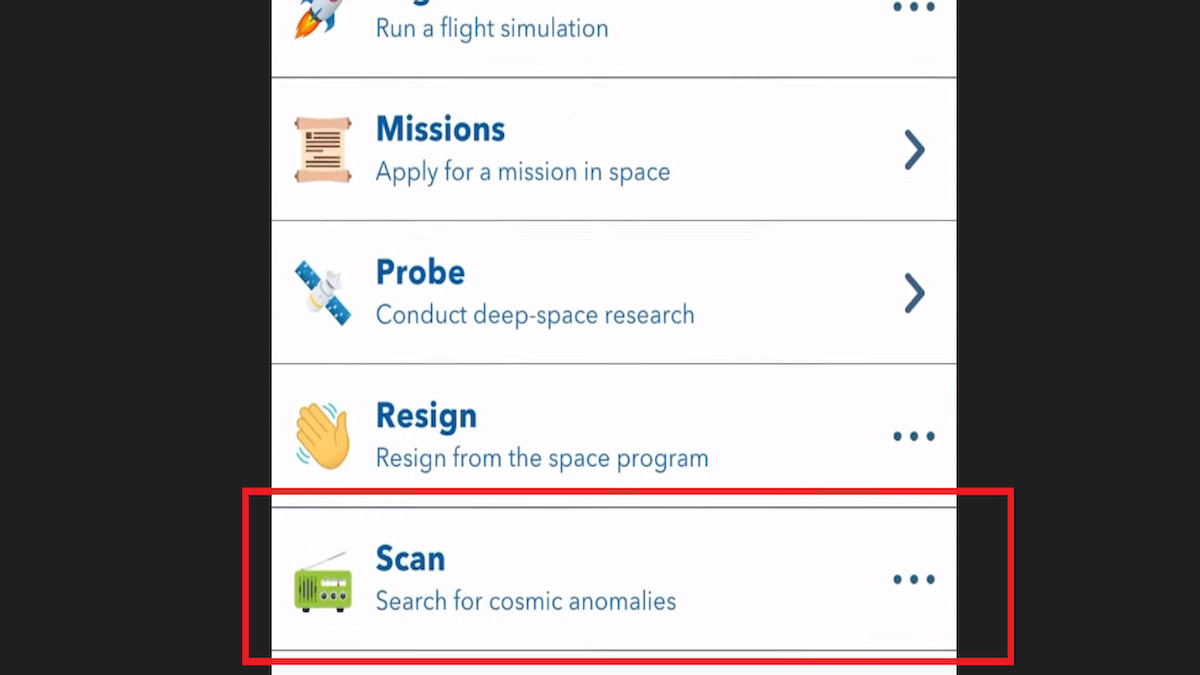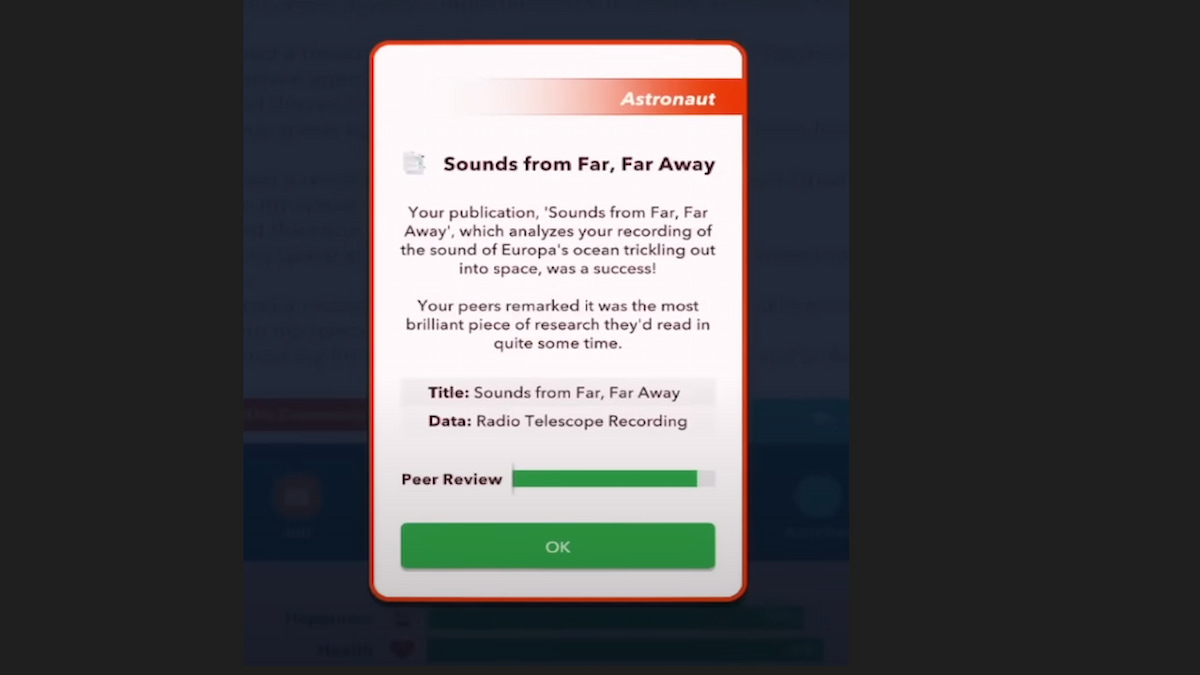One of the most challenging objectives of the Cosmic Explorer challenge is to win a Nobel Prize. To win a Nobel Prize in BitLife, you must join as an astronaut in any space agency and continue publishing groundbreaking research papers on your discoveries. Here's how to do all that.
How to publish groundbreaking research papers in BitLife
First and foremost, join any space agency as a Cadet or Junior astronaut. If you do not know the procedure, read our separate guide on becoming an astronaut at NASA or any space agency from birth till you receive an offer letter.
Once you become an astronaut at a space agency, the next step is to publish papers based on your discoveries/findings. You can write about various stuff ranging from artifacts to space anomalies. I suggest writing about space anomalies as you can easily find groundbreaking discoveries that will lead to your first Nobel Prize.
Related: How to make Probes in BitLife
How to scan for space anomalies in BitLife
You can scan for space anomalies using the Scan option under the astronaut's Activities tab.

In the scan window, use the following settings to make a breaking discovery. Currently, the time option does affect your settings, so pick anything of your choice.
| Planet | Frequency |
| Sun | 0-9 GHz |
| Mercury | 10-19 GHz |
| Venus | 20-29 GHz |
| Mars | 30-39 GHz |
| Jupiter | 40-49 GHz |
| Saturn | 50-59 GHz |
| Uranus | 60-69 GHz |
| Neptune | 70-80+ GHz |
| Deep Space | 80-100 GHz |
| Pluto | Any Value |
If you make a groundbreaking discovery, you will obtain one of the following messages concerning your planet.
Sun
- "...a formation of a sunspot cluster."
Mercury
- "...rapid radio signal from Mercury."
- "...pulsing radio signal from Mercury."
Venus
- "...disruption in the planet's energy."
Mars
- "...sound of David Bowie's 'Life on Mars' from around the Gale crater."
- "...steady radio signal from Mars' ionosphere."
- "...unusual shift in Mars' magnetic field."
Jupiter
- "...rhythmic radio frequency emanating from Callisto."
- "...radio waves volleying back and forth between Jupiter and Callisto."
- "...sound of Europa's ocean trickling out into space."
- "...volcanic eruption on Io."
Saturn
- "...radio emissions generated by Enceladus as it interacted with Saturn's magnetosphere."
- "...a strange radio signal emanating from Iapetus."
Uranus
- "...the presence of a previously unknown ring around Uranus."
Neptune
- "...volcanic eruption on Triton."
- "...synchrotron radiation emitted by Dark Spot 2 of Neptune."
- "...synchrotron radiation emitted by the Great Dark Spot of Neptune."
Deep Space
- "...desperate radio signal from Mercury."
- "...black hole sucking up a probe."
- "...a snippet of radio waves from a live performance of Rick Astley's 'Never Gonna Give You Up' that bounced off a distant planet."
- "...some sick alien beats."
- "...radio wave from a distant galaxy."
- "...a star imploding."
- "...black hole sucking up a nebula."
- "...sound of two neutron stars colliding."
- "...white hole erupting in deep space."
- "...a snippet of radio waves from the 'Power Rangers' theme song that bounced off a distant planet."
Pluto
- "...a snippet of radio waves from an episode of Bob's Burgers broadcasted from Earth that bounced off from Pluto."
Once you have received one of the messages, publish those findings immediately with a green peer review score. If not, delete the current report and repeat the process.

Publish such groundbreaking discoveries with perfect peer review scores multiple times each year till you receive a Nobel for your contribution. I received a Nobel Prize within four years of joining as a cadet astronaut. So, be patient and keep publishing your reports.
For more on BitLife, check out How to go on Martian Exploration in BitLife or How to go on a Spacewalk in BitLife on Pro Game Guides.
